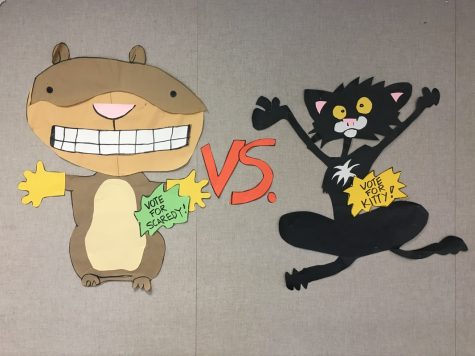Does my vote even count in Illinois? Absolutely.
The year was 2016, and my friends and I couldn’t believe Donald Trump had actually been elected President of the United States. Our whole fifth grade class speculated about which of the teachers might have secretly supported him, echoing ideas we had heard from our liberal parents.
Since it was an election year, a mock election was held in my social studies class. We lined up and voted in the classroom, with a shoe box on the back table holding all of our votes. The next day, the results were shared. A complete shock to absolutely no one, Hillary Clinton won, and Donald Trump lost almost unanimously, with only one vote in his favor. We had our guesses, but since the votes were anonymous, I never found out who the one vote belonged to.
While not quite as complex as the Electoral College system, which gives votes to each state based on how many members of Congress it has, our election mattered. Miss Moncatch’s fifth graders wanted Hillary Clinton to be the next President of the United States.
At the same time, a much more thrilling election was also happening. The heated debate of who to elect: Scaredy Squirrel versus Bad Kitty. Every election year, our library put on a mock election featuring two book characters. It got intense. Friends turned on friends, playground politics became real, and I was a part of all of it.
I was vehemently opposed to Bad Kitty who I, quite frankly, found to be annoying. Additionally, Scaredy Squirrel was endorsed by my beloved first grade teacher.
After some intense campaigning, it was time to vote, and the election was close. I just could not wrap my head around who might have actually voted for that cat! But we found out a little later that Scaredy Squirrel had prevailed. I was ecstatic when I found out he won (but not as thrilled as I was when Piggy won over Fly Guy in 2012).
The point I’m trying to make is not that elections will always go your way, nor that elementary school elections have a comparable effect on real life issues. But in both elections, close or not, I voted.
I voted because I had an opinion on who I preferred, and I had the opportunity to share that.
If you are voting in Illinois, it may seem pointless to even vote at all. Many have a preconceived notion that Illinois will always go blue. However, as seen in the tight 2020 Illinois Congressional race, this is not always true.
Lauren Underwood, incumbent Democratic representative, ran against State Senator Jim Oberweis in Illinois’ 14th District. According to The New York Times, Underwood won, but only by a margin of fewer than 6,000 votes, gaining a total percentage of 50.7.
The mindset that our votes are meaningless, almost as if some predetermined force controls the outcomes of all elections, is dangerous, especially for youth. It is our responsibility to vote for candidates that represent our values, and that will make our voices heard on the local, state and federal level.
It is important to remember that though many agree that everyone should have equal access to the polls, that is unfortunately not the case. Having to take a day off of work to vote or to register with proper registration is simply not possible for everyone. I believe this is a huge injustice, and makes our ability to vote all that much more important.
Make sure you are registered to vote as soon as you are eligible. According to the Illinois Board of Elections website, you must be 18 to vote in a general election, and 17 to vote in a primary election if you will be 18 by the time the general election takes place. Check out elections.il.gov for more information about voter registration.



